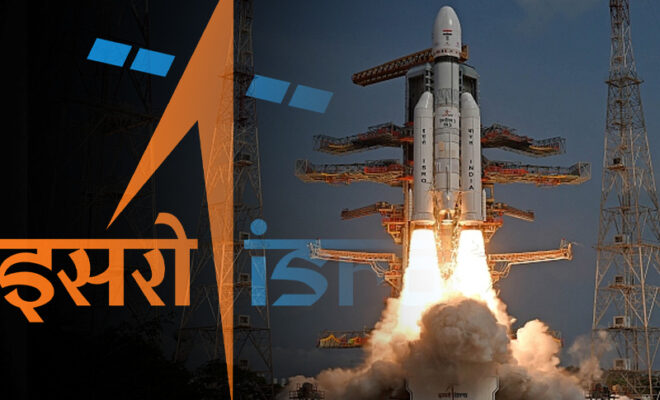ISRO Successfully Launches Navigation Satellite NVS-01 Through GSLV-F12

ISRO has successfully launched a GSLV-F12 rocket, carrying a navigation satellite to augment continuity of the Navigation with Indian Constellation (NavIC) services.
ISRO, the Indian Space Research Organisation, achieved yet another milestone as it successfully launched a rocket carrying a key navigation satellite from the Sriharikota spaceport.
The launch marks a significant step towards ensuring the continuity of India’s regional satellite navigation system, known as NavIC, which is comparable to the popular Global Positioning System (GPS).
The GSLV (Geosynchronous Satellite Launch Vehicle) rocket, standing tall at 51.7 meters, gracefully lifted off from Sriharikota’s second launch pad on Monday. With clear skies overhead, the rocket took flight precisely at 10:42 am as scheduled.
Approximately 20 minutes after liftoff, it placed the 2,232 kg navigation satellite, named NVS-01, into a geosynchronous transfer orbit (GTO) at an altitude of around 251 km.
The primary objective of this launch was to augment the continuity of NavIC services, which provide accurate and real-time navigation within India and up to a 1,500 km radius around the mainland.
NavIC, formerly known as the Indian Regional Navigation Satellite System (IRNSS), consists of seven satellites and a network of ground stations that operate non-stop.
NavIC offers two services: the Standard Positioning Service (SPS) for civilian users and the Restricted Service for strategic users.
The signals from NavIC ensure user position accuracy better than 20 meters and timing accuracy better than 50 nanoseconds, according to ISRO.
Importantly, NavIC’s SPS signals are interoperable with GPS, Glonass, Galileo, and BeiDou, enabling seamless integration with global navigation systems.
The second-generation navigation satellite launched by ISRO also boasts the inclusion of an indigenously developed rubidium atomic clock. Previously, ISRO relied on imported atomic clocks for its satellites.
This technological advancement is a testament to India’s progress in building its own satellite systems and reducing dependence on foreign imports.
The successful launch of NVS-01 marks the sixth operational flight of the GSLV with an indigenous cryogenic stage, further establishing ISRO’s expertise in rocket technology.
The satellite’s mission life is projected to exceed 12 years, highlighting the durability and long-term capabilities of India’s navigation satellite system.
After this launch, ISRO has once again demonstrated its prowess in the space domain and its commitment to advancing India’s technological capabilities.
Also Read:- 7 interesting things you must know about India’s new Parliament
Also Read:- 7 interesting things you must know about India’s new Parliament
The launch of NVS-01 brings India closer to achieving self-reliance in satellite navigation and sets the stage for enhanced navigation services across the country and its surrounding region.



